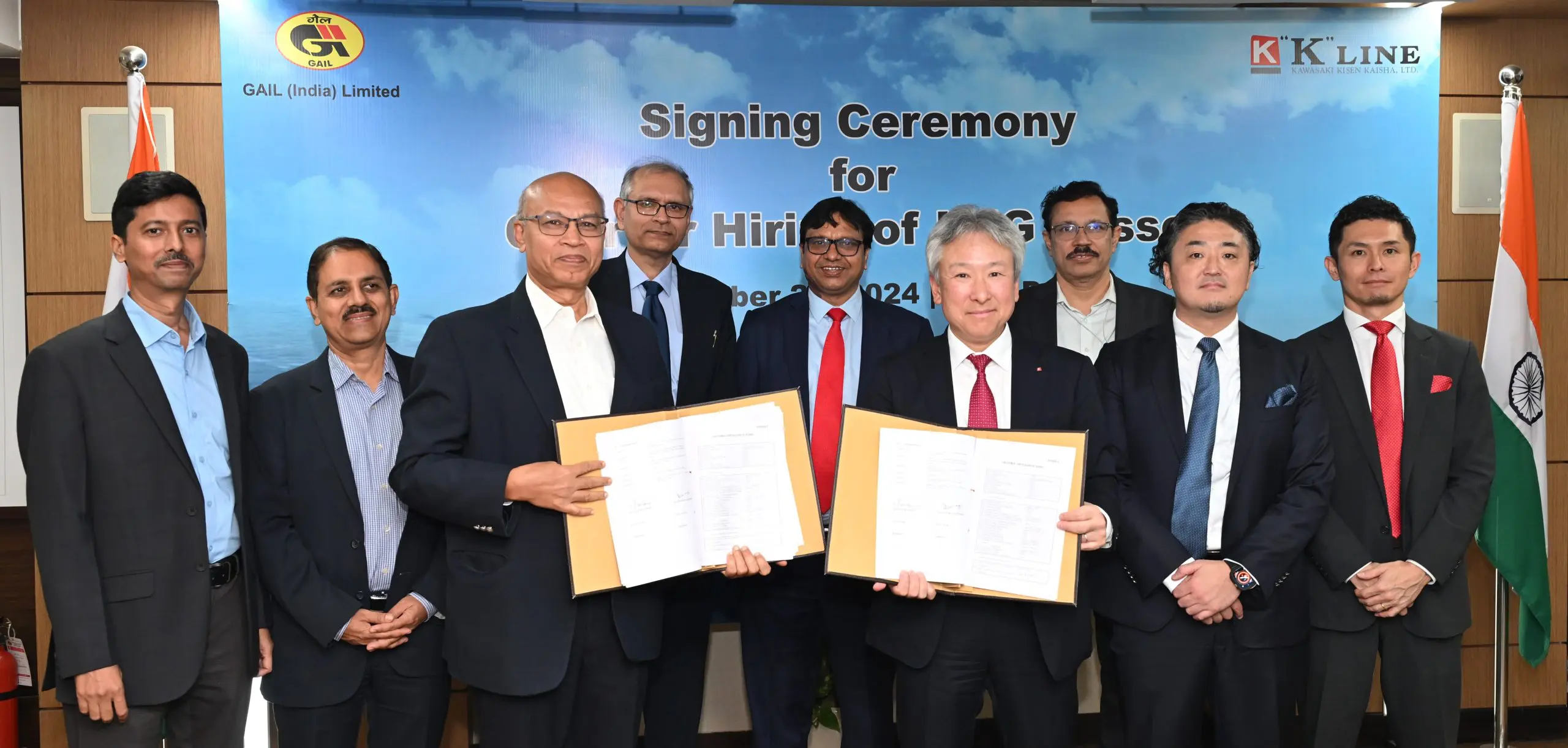This story requires a subscription
This includes a single user license.
GAIL revealed the signing of the charter deal for one 174,000-cbm LNG carrier in a statement on Friday.
The company did not provide the duration of the charter deal.
This is the first long-term time charter contract between GAIL and K Line involving a newly built vessel.
GAIL expects the vessel to start shipping LNG from 2027.
Moreover, the firm said the two-stroke vessel will be built by South Korea’s Samsung Heavy Industries, with which NYK has concluded a shipbuilding contract.
Samsung Heavy recently secured an order worth about $259 million for one LNG carrier.
The shipbuilder said it will build the LNG carrier for an unidentified owner in Asia, and deliver the vessel by June 2027.
Shipbuilding sources told LNG Prime at the time of the order that K Line ordered this vessel, while the LNG carrier will serve a charter deal with GAIL.
GAIL’s LNG fleet grows
GAIL currently has four chartered LNG vessels in its fleet.
These vessels are GAIL Bhuwan, GAIL Urja, Grace Emilia, and Maran Gas Pericles.
In addition, GAIL said two more ships are expected to join the fleet next year, including one newbuild vessel on long-term charter.
The firm recently also signed a vessel charter deal with LNG giant Shell.
Prior to that, GAIL entered into a 14-year charter deal with CoolCo for one of the latter’s two newbuild LNG carriers currently under construction in South Korea.
GAIL is an end user for LNG and sells regasified LNG to customers in the fertilizer, city grid, power, refinery, and petrochem sectors, amongst others in India.
The firm owns and operates a network of over 16,000 km of natural gas pipelines in India.
It holds a stake in India’s largest LNG importer, Petronet LNG.
GAIL has a diversified sourcing portfolio for over 15 mtpa which includes supply sources from various geographies both on FOB and DES basis.
The long-term contracts include volumes from the US and Qatar.
GIL said the company’s LNG fleet is deployed to lift volumes contracted on FOB basis primarily from the North American region.
These volumes meet the domestic demand as well as demand from international customers.

